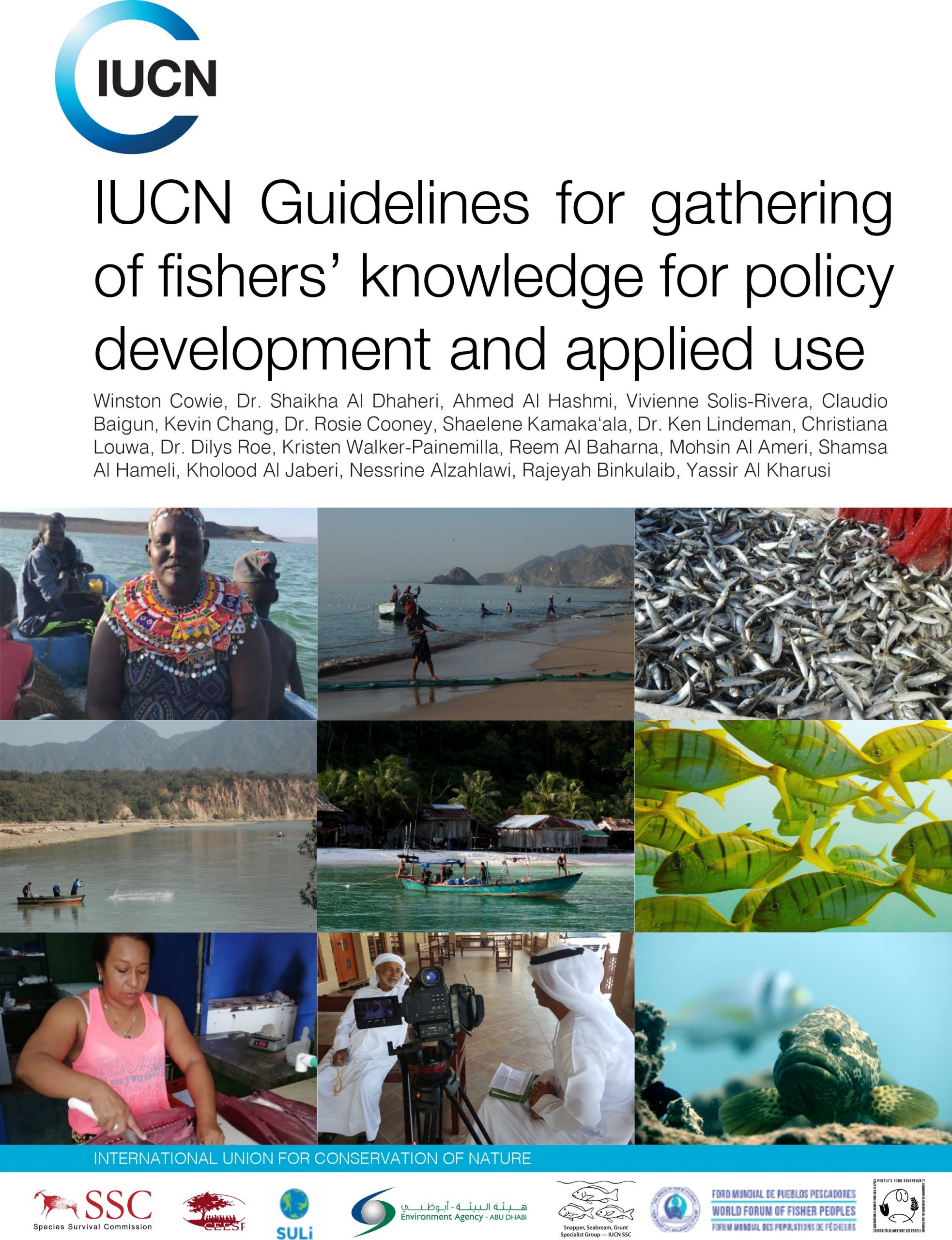First published on 11/26/2020, and last updated on 06/18/2025
The publication outlines how fishers’ knowledge can be applied to support sustainable small-scale fisheries.
A new guideline has been published for documenting, safeguarding, and utilizing fishers’ knowledge.
The guideline titled ‘IUCN Guidelines for gathering of fishers’ knowledge for policy development and applied use’ is the result of a collaboration among IUCN, the Environment Agency – Abu Dhabi (EAD), the World Forum of Fisher Peoples, and the International Planning Committee Working Group on Fisheries.
Two Honorary Members of ICCA Consortium; Kevin Chang of Kuaʻāina Ulu ʻAuamo KUA (Member, ICCA Consortium) and Vivienne Solis-Rivera of CoopeSoliDar are part of the working group that coordinated the development of the guideline.
The Guidelines aim to make it easier for users to recognize and include fishers’ knowledge as an important data stream in resource management. The 180-page publication presents detailed methods and standards about how fishers’ knowledge can be gathered. It also outlines how this information can be applied to support sustainable fisheries policy.
These Guidelines are applicable in small-scale fisheries; in freshwater, riverine, lacustrine, and near-shore coastal areas. Type of fisheries where communities rely on fishing for sustenance, recreation, or a source of income. The Guidelines can be used in fisheries, which are overexploited, to support fisheries change management, those that have limited data management, and in sustainably utilized fisheries.
The development of the guidelines, led by the IUCN SSC/CEESP Sustainable Use and Livelihoods Specialist Group, followed a robust participatory process and consulted with stakeholders from subject matter experts to governments, small-scale fisher organizations, Indigenous fisher organizations, civil society organizations, research and academia, and the private sector; included contributions from 50 experts and case studies from Africa, Asia, the Caribbean, Central, and South America, and the Pacific.
It may be noted that recently ICCA Consortium has launched a new initiative to protect territories of life and community fisheries in freshwater, coastal, and marine systems. Building on our Members’ many years of existing experience, it will support community-centric activities at the local, national, regional, and global levels in line with our mission and strategic approach.
Community fisheries and territories of life in freshwater, coastal, and marine systems are extraordinarily diverse and thrive in all regions of the world, from the tropics to the Arctic. However, they often face common threats from top-down conservation, industrial fisheries, and other destructive activities, and more broadly from exclusionary policies, laws, and decision-making processes that affect them.
REFERENCE
Cowie, W., Al Dhaheri, S., Al Hashmi, A., Solis–Rivera, V., Baigun, C., Chang, K., Cooney, R., Kamaka‘ala, S., Lindeman, K., Louwa, C., Roe, D., Walker–Painemilla, K., Al Baharna, R., Al Ameri, M., Al Hameli, S., Al Jaberi, K., Alzahlawi, N, Binkulaib, R., Al Kharusi, Y. (2020). IUCN Guidelines for gathering of fishers’ knowledge for policy development and applied use. IUCN, Gland, Switzerland; and Environment Agency – Abu Dhabi, United Arab Emirates.
Featured image: Cover page of IUCN Guidelines for gathering of fishers’
knowledge for policy development and applied use. Photo: IUCN & EAD
